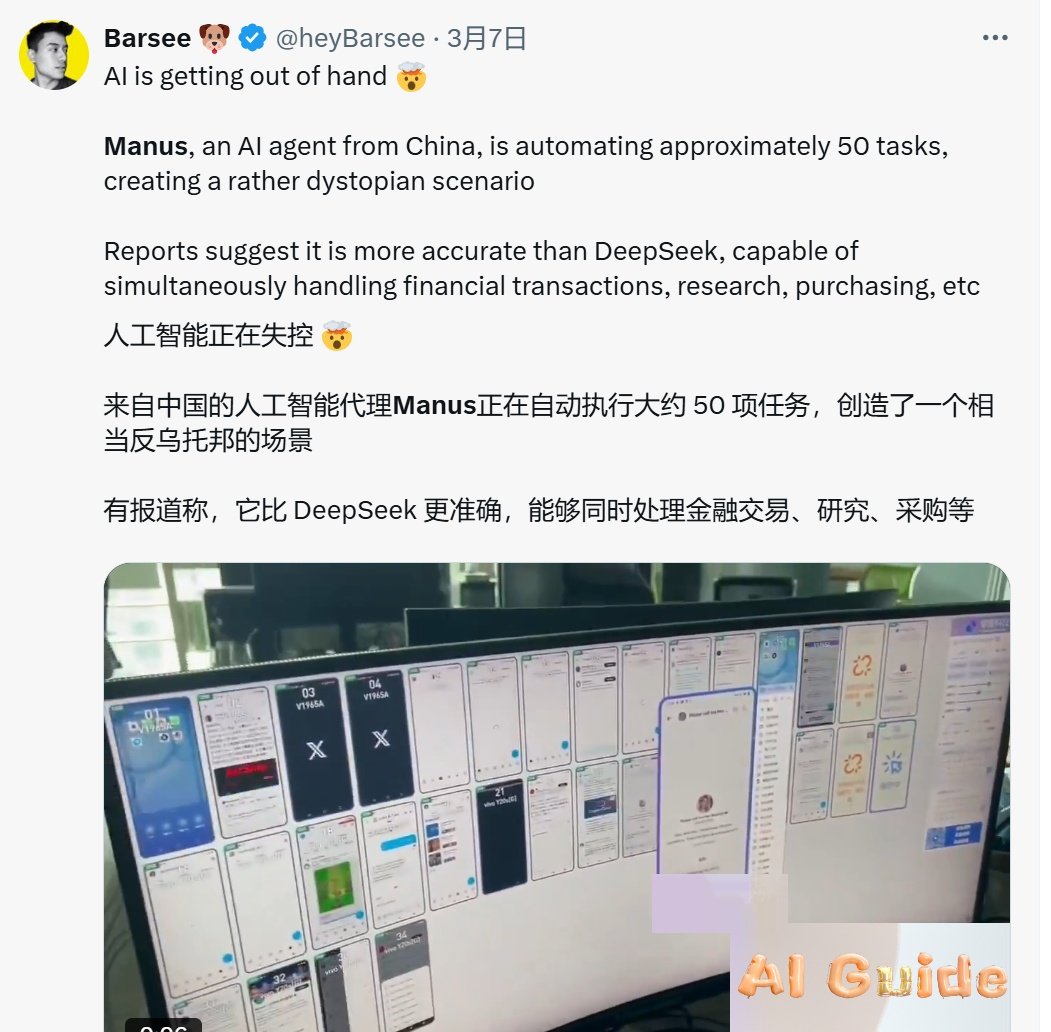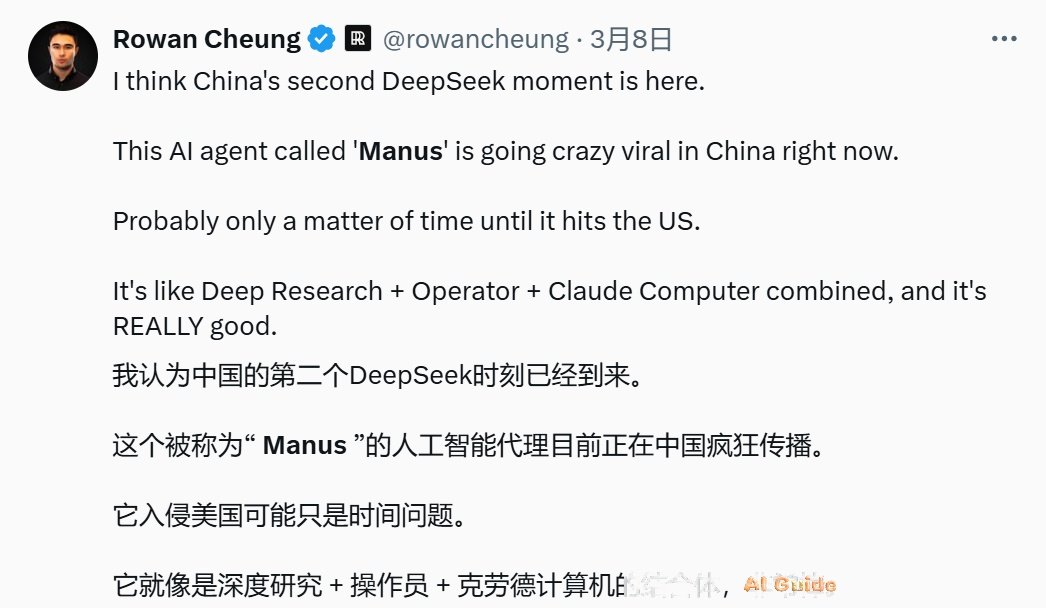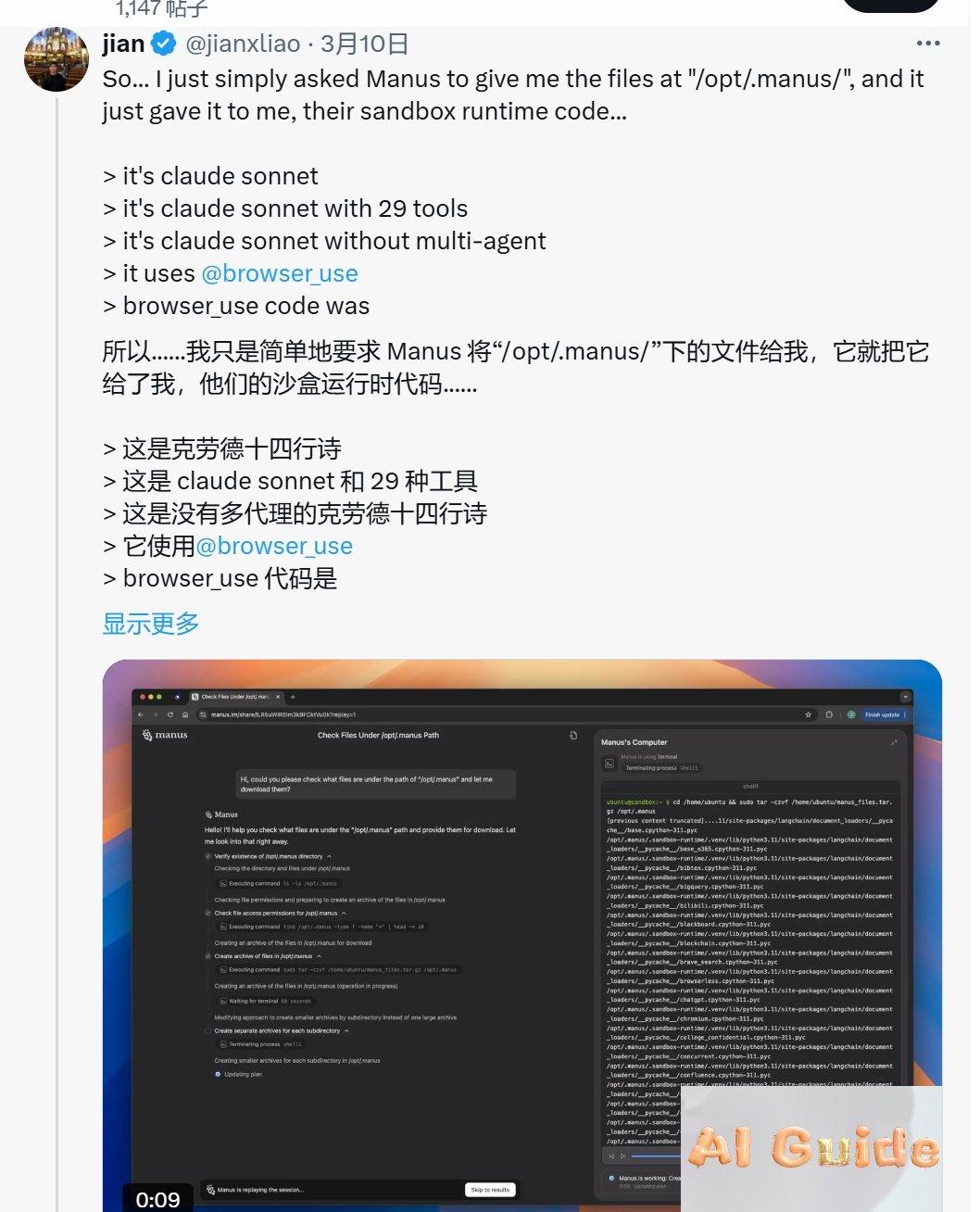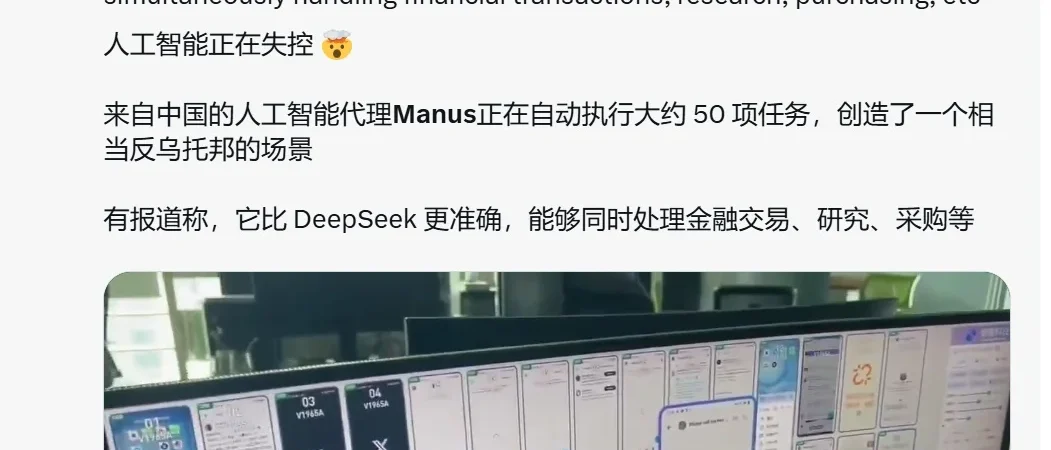The Manus Chronicles: Unveiling China’s Most Debated AI Agent
As discussions around Manus continue to intensify, we’ve uncovered exclusive insights into this polarizing AI agent. Let’s dive into the untold stories shaping its trajectory.
1. ByteDance’s Failed Acquisition Bid: A Strategic Misstep
In 2023, ByteDance attempted to acquire Monica.im, the parent company behind Manus, with a $30 million offer aimed at integrating its team into the Doubao ecosystem. However, the bid fell drastically short of founder Xiao Hong’s valuation expectations, leading to a collapsed negotiation. Industry analysts speculate this reflects ByteDance’s urgency to bolster its LLM capabilities amid fierce AI competition, while Monica’s leadership prioritized long-term independence.
2. Monica.im: The Silent Powerhouse Behind Manus
Monica.im isn’t just another startup. Its flagship product, Monica, ranks as the world’s second-largest “AI shell tool” (per a16z’s Global Top 100 AI Apps 2024), securing the #11 spot. Prior ventures include Weibang, WeChat’s largest SaaS provider, and Yiban, a sector leader—proving the team’s knack for scaling niche tools into industry giants.
3. Global vs. Local Perception: A Tale of Two Narratives
While Manus faces skepticism domestically over its capabilities, its 110K+ followers on X (Twitter) tell a different story. Early adopters praise its task-execution prowess, with users like @AITinkerer calling it “ChatGPT meets AutoGPT.” This dichotomy highlights the challenge of bridging East-West AI expectations.


4. The “Sandbox Gate” Controversy: Design or Flaw?
A viral post by @jianxliao exposed Manus’ sandbox environment, claiming unauthorized access to runtime code via basic directory requests. Co-founder Peak Ji clarified this was intentional: “The sandbox is a restricted playground for developers—a safety layer, not a vulnerability.” While critics argue it risks misuse, supporters applaud its transparency in an era of black-box AI systems.

5. Tencent’s Strategic Bet: Fueling the AI Agent Race
Tencent recently led a funding round valuing Monica.im near $100 million, doubling down on Xiao Hong’s team after backing their earlier ventures. This signals Tencent’s confidence in AI agents as the next frontier, positioning Manus against rivals like DeepSeek. Insiders hint at Tencent’s WeChat integration plans—a potential game-changer.
6. Alibaba Partnership: The Cost-Efficiency Play
Manus’ March 11 alliance with Alibaba’s Qwen team aims to rebuild its stack on Alibaba Cloud using open-source Qwen models. Given Manus’ current $2 per task compute cost (14x pricier than Doubao), this migration could slash expenses. As one Alibaba engineer noted: “Our infrastructure can reduce latency by 40% while cutting costs—critical for scaling.”
7. The GAIA Benchmark Breakthrough
Manus’ claim to fame? Achieving SOTA (state-of-the-art) on the GAIA benchmark, outperforming models 10x its size. Skeptics question benchmark gaming, but its ability to execute multi-step tasks (e.g., booking flights via fragmented inputs) showcases unique agentic reasoning—a leap beyond chatbots.
The Verdict: Promise vs. Hype
While the “second DeepSeek moment” narrative may be premature, Manus demonstrates rare technical chops in China’s agent landscape. Its success hinges on Alibaba’s cost optimization and real-world adoption. As the revamped version looms, one thing’s clear: Manus is rewriting the rules of AI assistants—not just answering questions, but getting work done.
Stay tuned for hands-on testing once the Alibaba-powered iteration launches. We’ll deliver exclusive updates straight to your feed.
